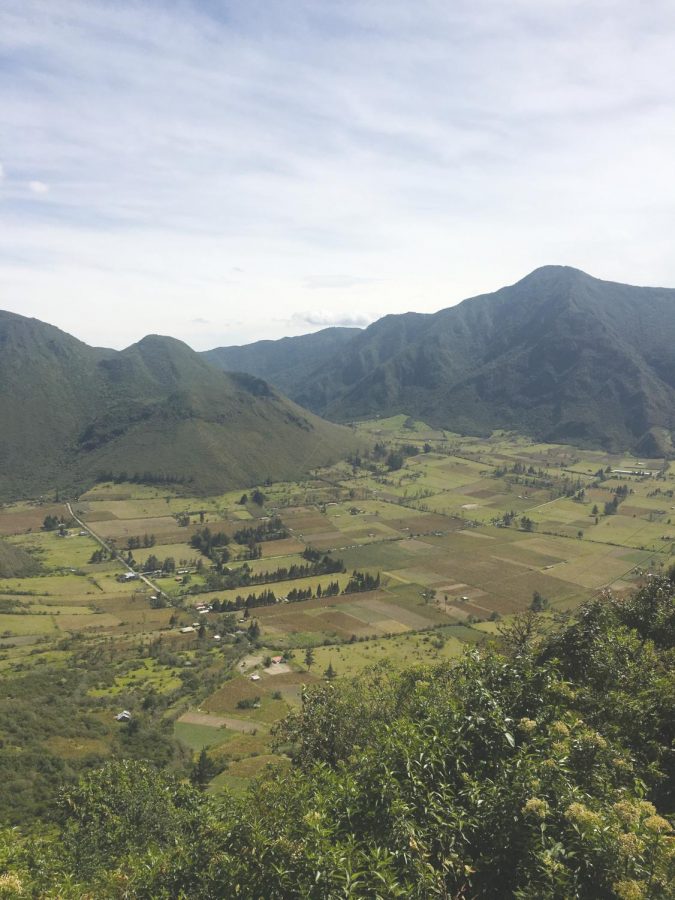Students get valuable experience in Ecuador
Photo by: Elizabeth Floyd
Students enjoy the views and understanding more about our planet’s biodiversity while spending time in Ecuador.
University is a place known for its road to higher learning and eventually a degree. However, many don’t know there is a more adventurous path to higher learning through many different courses that include travel abroad or unique field experience. FMU offers numerous opportunities to travel for courses that are easily available. These course opportunities are easy to miss as you walk by the walls of flyers around campus.
One of the recent courses to travel outside the walls of FMU was a tropical ecology and comparative biogeography course that fulfills an ecology or biology elective credit. The course begins in the United States and travels to Sumaco, Ecuador.
In Sumaco, there is a biological station known as the Wildsumaco Biological Station, which has a research partnership with many colleges such as Pontificia Universidad Católlica del Ecuador and University of North Carolina Wilmington to enrich the learning experience of students.
Travis Knowles, associate professor of biology, is also the Director of Wildsumaco Biological Station and a founder of the station and its program. He said everyone benefits from a broader perspective on the world and should travel to a new place to transform his or her view of the world.
“In developing Wildsumaco Biological Station and offering these courses, I wanted to offer our students direct experience in some of Earth’s greatest biodiversity hotspots,” Knowles said. “That experience expands our understanding of the incredible biological richness of our planet in ways no textbook can accomplish.”
Tyler Wright, vice president of the FMU Pre-Vet club, said the course he took with Knowles gave him a greater appreciation for our planet’s biodiversity.
“Being exposed to such unique and rich envirionments showed me just how wonderful, breathtaking, fragile and critically important biodiversity is to our ecosystem,” Wright said. “It was truly an experience I will never forget.”
Luke Fennell, a former student of the tropical ecology and comparative biogeography course, said he strongly recommends anyone interested in these courses to go on the trip if given the opportunity. He said because of his experience, he will never have the same views of nature, individual organisms or ecological factors.
“The sign up process for this course is relatively easy,” Knowles said. “Students should first see me to get their names and contact information on an interest list, which is nonbinding, but allows me to keep everyone apprised about deadlines via email. There is also an application and questionnaire that everyone must complete.”
Fennell said a conversation about the biological station during orientation sparked his interest in taking the course. He said Knowles, who mentioned the course to him, is also his advisor and contacted him about the application process and when it would begin.
“Professor Knowles helped educate me on the course requirements,” Wright said. “I was able to come to him in order to clarify anything. After getting excited about what all the course offered, becoming part of the class was as easy as signing up.”
Knowles said his favorite part of being involved in these types of courses is watching the individual light bulbs go off regarding those expanded personal horizons in students. He said some students have pursued careers in research or conservation as a direct result of the Wildsumaco experience, and everyone comes home with a permanently altered perspective for the better.
